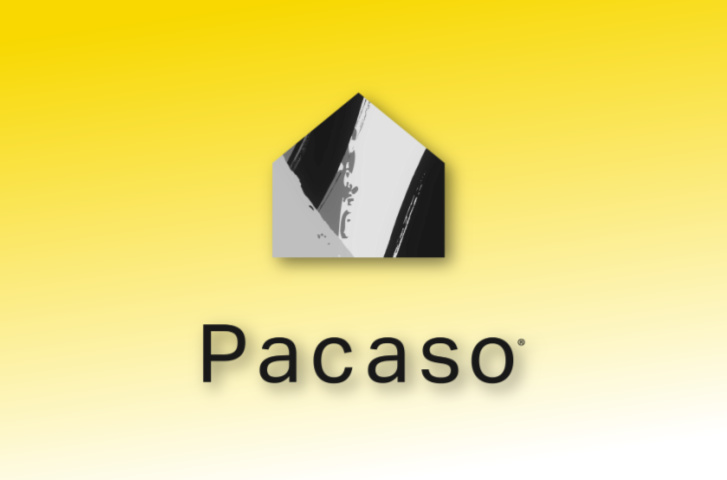Pacaso Lays Off a Third of Its Workforce, Points to Rising Interest Rates as The Cause
Share News:

Since it came on the scene, Pacaso has courted some amount of controversy. However, that hasn’t kept the second home investment company from growing at a rapid pace. However, this year’s quick growth has practically evaporated as the company, founded by two Zillow alums, has laid off a third of its staff.
Of course, Pacaso is not alone in its balance sheet blues as the real estate industry prepares for a contraction, but it is interesting that the relatively new company and its concept are cutting back so severely.
How Pacaso Works
While some homeowners in neighborhoods where Pacaso operates would consider the business model close kin to a timeshare, it’s a different way of doing fractional ownership:
Pacaso utilizes its resources to find your dream house and then goes in at least half of the price/ownership, depending on how much you plan on utilizing the home.
Then, all you have to do is sit back and enjoy your property as Pacaso takes care of the maintenance and other dirty details. Pacaso’s ultimate goal is to sell their share of the house to other vetted home owners.
For example, if you worked with Pacaso to buy 50 percent of a beautiful beachfront house, Pacaso would pay for half of the purchase and have a claim to half of the ownership. Then, they’d find other buyers to purchase shares of the house, ranging from a half to an eighth of ownership.
The Pacaso app’s scheduling algorithm figures out how much time each owner gets at the house depending on the size of their share. You can submit special request dates such as holidays, birthdays and anniversaries.

However, Pacaso has met resistance in several towns and neighborhoods in which it has purchased and then sold fractional ownership, especially throughout California’s wine country. There is more than one website decrying the company, dedicated to ousting the vacation home broker from operating in the area.
One website doesn’t pull any punches on the Pacaso business model:
Pacaso is the newest way for Silicon Valley bros and venture capital vultures to make a quick buck at your expense: By turning your neighbor’s house into what’s basically a glorified timeshare.
Forget the conference room sales pitch most of us associate with timeshares. Pacaso works quietly by buying up single-family properties under anonymous corporate shells and then resells “fractional” ownerships in the form of 1/8 of a furnished home. You may not realize the house next door sold to Pacaso until you see a revolving cast of guests pulling up every couple of days or weeks.
StopPacasoNow.com
Rate Hikes to Blame
According to a report from Inman, the September rate hikes meant that Pacaso’s purchase power isn’t what it used to be, and these vacation properties have gotten more expensive. Something has to give.
“It’s just completely different environment now,” Brian McGuigan, Pacaso’s Director of Corporate Communications, told Inman. “The Q3 report showed a decline in rate locks quarter over quarter of 28 percent for luxury second homes.”
This is the full post from Allison’s blog on the Pacaso site:
Crew – Today is a difficult day. In the last few weeks, the economy has become more unstable and a global recession now seems likely. Like any business in this environment, Pacaso must make proactive changes to ensure that our expenses align with revenue.
As a result, we will be reducing our workforce by 30% while we streamline operating costs. There will be no change to owner services or in-market home operations. Our long-term relationship with owners, and their homes, remains our top priority and will continue to receive exceptional service.
A big part of my job as CEO is to make tough decisions based on what is best for Pacaso, and to be transparent with you about why we’re making them.
Early in 2022, the capital markets – venture capital firms and public market investors – were enthusiastically funding growth stage companies. Our business expansion and headcount were designed for this hyper-growth environment, which was appropriate for the market conditions at the time. Fast forward ten months and we now must prepare for a recession. This change reverts our headcount back to January 2022 levels, and right-sizes our team for the immediate road ahead.
We all should be proud of what we have achieved in just two years of operation:
• We operate in 40 top destination communities in four countries
• Our portfolio of Pacaso homes is valued at more than $1B
• Pacaso continues to grow and we forecast 100% year-over-year growth in 2022
• We have many happy owners and continue to add new owners every week
• We continue to see liquidity in our resale marketplace as owners are selling shares with an average of 12% appreciationAs we reported last week in our Q3 Second Home Analysis, the luxury second home tier declined 28% quarter-over-quarter, however, demand is up 152% since the beginning of the pandemic. This is why we remain as excited as ever about the future of co-ownership and the mission of Pacaso to enrich lives through second home ownership, but we have to be realistic about the impact a recession could have on demand in the near-term.
I want you all to know that we will do our best to help our impacted crew make the transition. We will provide them with severance, healthcare coverage, and career help.
To those of you we will be saying goodbye to, I am sorry. We will miss you dearly and will be forever grateful for your contributions to Pacaso and our community of inspiring Owners.
To those of you who will continue on, I’m honored to serve you as CEO as we work together to build an enduring business and enrich millions of lives through second home ownership.
Austin


[…] Pacaso CEO Austen Allison blamed interest rate hikes on the massive cuts to the company’s staff: […]